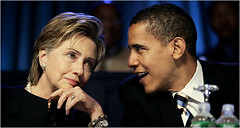
Fighting for the Rights of the Non-Religious
Submitted by admin on 23 November, 2007 - 13:04. IHN 2007.3 November | Separation of religion & state | International Humanist NewsThe Organisation for Security and Co-operation in Europe (OSCE) annual meeting on democratic institutions and human rights, held in Warsaw in September 2007, started with sessions on tolerance and freedom of religion and belief.. There were many contributors speaking on behalf of religious organisations, but the interests of the non-religious were represented only by the European Humanist Federation (EHF) and the British Humanist Association (BHA).
Strenuous efforts are now being made by religious leaders at the international level to attack secularism and to protect religions against so-called “defamation”. No satisfactory definition of “defamation of religion” has been advanced, but secularists fear that this is simply an attempt to limit the right to criticise religion and abuses carried out or justified in its name. Although the initiative for this attack on free speech originated with Muslim leaders and groups, who coined the term“Islamophobia”, the Roman Catholic Church and other churches in Europe have leapt enthusiastically onto the bandwagon with accusations of “Christianophobia”. Religious groups, which already have privileged positions, and some of which vigorously suppress opposition when they are in positions of power, are now trying to cast themselves as victims.
For example, the OSCE meeting heard the following contribution from Vatican representative, Monsignor Anthony R. Frontiero:
Demonizing Christianity, or deliberately mocking and undermining central tenets of the Christian faith as a means to promoting the rights of other groups is a clear and flagrant contradiction to the religious freedom and mutual respect that all people should enjoy, not to mention to the work of building a more just and peaceful community. Such practices must be seen for what they are: a subversive attempt to dismantle the progress made thus far in the promotion of tolerance and non-discrimination.
This resembles some of the comments we have seen in the wake of the Danish, and now Swedish, cartoons of Muhammad. Yes, they argue, of course free speech must be upheld, but it must not go so far as to offend the sensibilities of religious believers. If it does, it is an attack on the human right of freedom of religion! “Respect” must be automatically accorded to religious beliefs and believers.
In fact, away from the rarefied atmosphere of international conferences, religious leaders are often anything but respectful towards other religions. (This is hardly surprising in view of their conflicting doctrines.) An extreme example is found in Saudi Arabia, where no religion other than Islam is allowed to be preached or practised. And freedom of religion has little meaning in countries that still maintain a law against blasphemy or even apostasy.
When it comes to atheists, agnostics and Humanists, almost no holds are barred. At the OSCE Conference, Vera Pegna of the EHF called attention to the fact that hate crimes were always preceded by hate language which, in turn, preceded and fed prejudice and stereotypes. The widespread use of hate language and stereotypes against Jews in Europe had justified centuries of persecution and made the Holocaust possible. A similar smear campaign against the non-religious had been going on for over 20 centuries and was still current.
In a submission on behalf of the BHA, Hanne Stinson also took up this theme, referring to the Catholic Catechism and to the rhetoric and death threats emanating from some Muslim groups, in particular against apostates. She also instanced the many well-respected and moderate religious leaders who regularly declared that there could be no morality without religion, or who linked secularism with Stalin, Hitler and Pol Pot.
Hanne pointed out that, in work of the OSCE and many countries on social cohesion and inclusion, the focus tended to be on faith, faith communities, and faith leaders (who were rarely truly representative of the people they claimed to represent), and on interfaith and multi-faith considerations. We certainly had a multicultural society, and a pluralist society, but our society did not only include a variety of different faiths, but also a large number of people with non-religious beliefs. If we wished to work on social cohesion and address exclusion, hatred and hate crime, we needed to involve the whole community, not just the religious.
David Pollock of the EHF made a similar point in his submission, which is reproduced as one of the succeeding articles.
Diana Brown is the current editor of International Humanist News




































































No comments:
Post a Comment